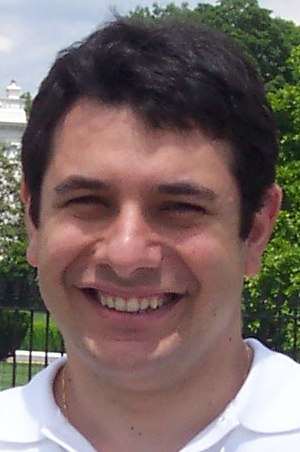Difference between revisions of "Events"
(→Professor Dimitrios S. Nikolopoulos) |
|||
| Line 14: | Line 14: | ||
'''ABSTRACT''' | '''ABSTRACT''' | ||
| + | |||
This talk explores new and unconventional directions towards improving the energy-efficiency of HPC systems. Taking a workload-driven approach, we explore micro-servers with programmable accelerators; non-volatile main memory; workload auto-scaling and structured approximate computing. Our research in these has achieved significant gains in energy-efficiency while meeting application-specific QoS targets. The talk also reflects on a number of UK and European efforts to create a new energy-efficient and disaggregated ICT ecosystem for data analytics. | This talk explores new and unconventional directions towards improving the energy-efficiency of HPC systems. Taking a workload-driven approach, we explore micro-servers with programmable accelerators; non-volatile main memory; workload auto-scaling and structured approximate computing. Our research in these has achieved significant gains in energy-efficiency while meeting application-specific QoS targets. The talk also reflects on a number of UK and European efforts to create a new energy-efficient and disaggregated ICT ecosystem for data analytics. | ||
<li style="display: inline-block;"> | <li style="display: inline-block;"> | ||
Revision as of 11:35, 26 March 2018
Contents
Visitors
Professor Dimitrios S. Nikolopoulos
School of Electronics, Electrical Engineering and Computer Science
Queen's University of Belfast, UK
When:Nov 12,2015, 10:30AM
What:New Approaches to Energy-Efficient and Resilient HPC
Email:d.nikolopoulos@qub.ac.uk
Homepage:| http://www.cs.qub.ac.uk/~D.Nikolopoulos/
ABSTRACT
This talk explores new and unconventional directions towards improving the energy-efficiency of HPC systems. Taking a workload-driven approach, we explore micro-servers with programmable accelerators; non-volatile main memory; workload auto-scaling and structured approximate computing. Our research in these has achieved significant gains in energy-efficiency while meeting application-specific QoS targets. The talk also reflects on a number of UK and European efforts to create a new energy-efficient and disaggregated ICT ecosystem for data analytics.
